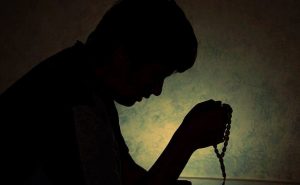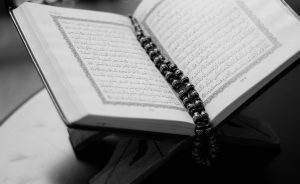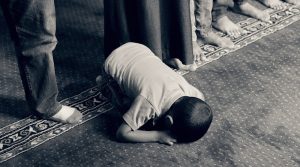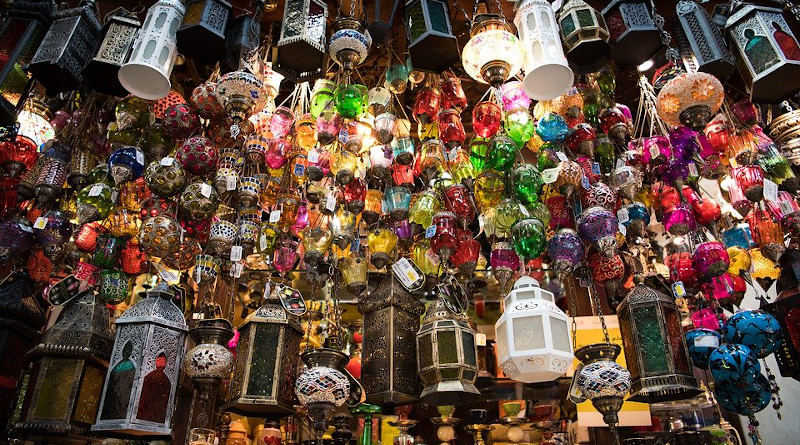Ramadan Is Synonymous Of Devotion, Solidarity And Sharing – Analysis
Ramadan is the ninth month of the Muslim lunar year and the only one mentioned by name in the Qur’an, it is intrinsically linked to the observance of the fourth of the five pillars of Islam, i.e. the practice of obligatory fasting (sawm, sometimes siyyam). Before the Prophet Muhammed and his companions were forced to flee Makkah and settle in Madinah, Muslims practiced only non-compulsory fasts. It was not until the year 2 AH (623 CE) that a series of verses in Sura 2 (verses 183 to 187) required Muslims to fast throughout the month of Ramadan – a full lunar month – and laid down the basic rules of this rite
Deep meaning
In Egypt, the day of fasting begins early, when the mesaharati passes in the streets to announce that one must hurry to eat before the sun appears. The faster can then go back to bed and get up a little later than usual. Between 2 and 4 p.m. you have to go home as soon as possible. A few minutes before the end of the fast, there is a great upheaval in the streets. Then the long-awaited signal sounds from the mosques.
In Cairo, a cannon is fired from the citadel to announce the beginning of the iftar (breakfast). Everywhere, large tables are set up in the street. During the iftar, everything stops : the streets are deserted, before the animation starts again. In the evening, people go out, stroll, linger at the terraces of coffee, and this until the suhur, the dinner.

Ramadan originally meant « great heat, » an image taken from the pre-Islamic solar calendar. This month was sacred in the pre-Islamic Arabic tradition and was a month of truce. Certainly, the month of Ramadan is the month of abstinence, the month when one deprives oneself of food, among other things. But beyond fasting itself, this month is a good opportunity to question the “basis and the foundations” of Islamic spiritual practice. Above all, it is a time of solidarity and sharing. Islam is not a dogmatic religion. It is above all an interior step, a “vision of the heart” that allows man to return to the centre of himself.
The fasting of the month of Ramadan is perfectly in line with this approach, which leads man to make a constant effort to fight against his weaknesses and passions, to constantly improve, to become totally humanized. The principle of fasting is linked to that of self-control. It is the affirmation of man’s will and freedom in relation to himself and his immediate desire to satisfy his basic needs. It is also the bond of solidarity with the hungry, who must be helped to escape from their situation of destitution and misery [cf. almsgiving, one of the pillars of Islam].
It is the month of conviviality and sharing. Going towards the other who is not from the same social milieu, origin or religion as oneself. Breaking the fast at nightfall, not to swallow everything one can, but to break the silence and the bread, to share a moment of conviviality with family, friends or in associations, mosques, restaurants, cafés ?
Reflection And Reason
All ancient civilizations, all religions have imposed on their followers a few days of fasting per year. Why is that ? Was it mere superstition, or was there some use for the practice ?
We live in a time when every citizen, rich or poor, can have access to education. Moreover, our governments are not obliged to impose on us the practice of our spiritual duties. That is why it may be a question of whether this ancient duty of fasting is still in the interest of society.
The preliminary and objective study of this subject is all the more incumbent on Muslims, since not only reason, but also the Qur’an, the very foundation of Islam, enjoins them to do so.
Indeed, there is not a single one of the spiritual duties imposed by the Qur’an that is not accompanied by a call for reflection, for meditation, so that man may discover that it is in his interest to fulfil it. The Qur’an repeatedly exhorts us not to follow blindly the customs of our ancestors, but to think for ourselves, so that man may be justly and personally responsible for his actions. Human beings should not act not only by instinct like animals, but by personal decision, as befits a being to whom Allah has given reason, to the exclusion of other creatures.

Since man is both body and spirit, the exclusive pursuit of benefits for only one of these components will be to the detriment of the other, and will destroy the equilibrium of the individual. The true interest of man requires harmony between body and soul, as well as their happy coordination.
If we work only for the benefit of the spirit, we will become angels and even beyond, but Allah has already created angels and does not need to increase their number.
Likewise, if we spend all our energy on material welfare and selfish interest, we will become beasts, devils, and even worse. Now, Allah has already created such beings, also, and by becoming beasts or devils, we are going against the divine intention that presided over the creation of beings endowed with the power to perform works, both spiritual and material, and endowed with reason to distinguish good from evil.
The Practice Of Fasting During Ramadan
The practice of fasting during Ramadan is of great importance in the religious life of Muslims, as much for the rigour it implies as for the spiritual perception of such asceticism. Even more than prayer, Ramadan fasting brings into play a twofold aspect of religiosity : collective societal participation, a fully horizontal dimension of the religious fact, and the individual commitment of the faster, a fully vertical dimension of the act of faith. It should be noted that this double component is found again in the fifth pillar : the Pilgrimage.

Thus, by “fasting Ramadan”, the Muslim is in phase with his community, a state of interpersonal communion, a simple reality which should not make him lose sight of the fact that fasting is also a purely spiritual process, a state of mystical communion. Just as we have done for the prayer, between the weight of obligation and the sincerity of the impulse of faith, we are therefore expected to ask ourselves about the Qur’anic point of view concerning the obligatory or non-obligatory character of fasting in Ramadan. Finally, we recall that the Ramadan fast has the particularity of being devoted to the celebration of the Qur’an, which is undoubtedly the intrinsic key to spiritual openness.
As a pillar/rukn, the fasting of Ramadan is for Islam a divine obligation/farḍincumbent on Muslims. From this obligatory character, Islam has made many accommodations in view of the physical difficulty of fasting for one month. Children, the sick, pregnant women, the elderly and travellers are therefore traditionally exempt from fasting, as are the sick, pregnant women, the elderly and travellers on a temporary basis. In addition, Islamic law has produced a large body of literature that explains the many details that Muslim casuistry has generated regarding the practice of this fast, so we refer the reader to this vast body of literature.
What holds our attention is of a different order since, even more than for prayer, there is the question of the balance between obedience to what is considered an obligation and the deep spiritual impulse that the practice of fasting implies, understood as a potential crucible of mystical experience. However, as we have been able to demonstrate that the obligation to pray is in fact a prescription of Islam and not of the Qur’an, it is expected that the same will be true of Ramadan. Between collective and elective, ritual and spiritual, how does the Qur’an articulate this issue ?
In the Qur’an, all the information concerning the practice of fasting in Ramadan is contained in a single chapter : S2.V183-187. This thematic treatment of one of the Qur’anic lineaments of the proto-Islam is rare in the Qur’an, and it can be assumed that in this way it testifies to the institution of the introduction of a practice that is completely new to Muslims. It follows directly from this that the information necessary for the implementation of this fast is set forth in this chapter and is sufficient. However, the answer to the previous question requires us to analyze only the verses 183-184.
“O you who believe ! Fasting is prescribed for you, as it was prescribed for those before you, may you fear piously ! ” – S2-V183
S2-V183 : يَا أَيُّهَا الَّذِينَ آَمَنُوا كُتِبَ عَلَيْكُمُ الصِّيَامُ كَمَا كُتِبَ عَلَى الَّذِينَ مِنْ قَبْلِكُمْ لَعَلَّكُمْ
تَتَّقُونَ
The Sura is addressed here to Muslim believers, men and women, without distinction, since the formulation used is gender-neutral. Consequently, all the remarks and rules that will be enacted concern the one as well as the other. It is from the segment “Fasting is prescribed for you/kutiba, as it was prescribed/kutiba for those before you.” That Islam has decreed that fasting in Ramadan is a religious obligation instituted by Allah.

If we were to understand here that the verb kataba means “to prescribe” in the sense of a divine imperative, it should also have been an order of the same nature for “those who come before you” since it is well said “as it was prescribed/kutiba to those who come before you“. If this is so for Judaism, it is not so for Christianity. Indeed, according to the Torah, the fast of Yom Kippour, the fast of twenty-five hours, is “a perpetual law” and it is the only obligatory fast ; other fasting days exist but are optional. On the other hand, no verse in the New Testament mentions an obligatory fast, while many other verses incite fasting as a purifying and spiritual practice, so for Christians fasting is a supererogatory act and not an obligation.
This simple interreligious observation therefore allows us to affirm that according to the meaning that Islam gives to this verse it is false to declare that fasting “is prescribed/kutiba as it was prescribed/kutiba to those who came before you“, Jews and Christians differing on this point. Also, unless it is assumed that the Master of Revelation does not know the religions referred to here, the verb kataba cannot mean prescribe in the sense in which Islam understands it : i.e., an obligation, but retains its original meaning : to recommend, to invite to.
Let us note that if Christianity had thus undone the Jewish juridical formalism, Islam has reintroduced it on its own account, a procedure and line of conduct which is regularly found in the construction of Islam. This is not speculation and the verse to follow will confirm the non-obligatory character of the Ramadan fast.
S2-V184 : “Days are counted, but which of you is sick or travelling, then determine other days. And, as for those who could have, a redemption is incumbent upon them : the food of a poor man. And, who willingly does good, it is good for him, but fasting is better for you, if you only knew it ! »
S2-V184 :
أَيَّامًا مَعْدُودَاتٍ فَمَنْ كَانَ مِنْكُمْ مَرِيضًا أَوْ عَلَى سَفَرٍ فَعِدَّةٌ مِنْ أَيَّامٍ أُخَرَ وَعَلَى الَّذِينَ يُطِيقُونَهُ فِدْيَةٌ طَعَامُ مِسْكِينٍ فَمَنْ تَطَوَّعَ خَيْرًا فَهُوَ خَيْرٌ لَهُ وَأَنْ تَصُومُوا خَيْرٌ لَكُمْ إِنْ كُنْتُمْ تَعْلَمُونَ
The True Meaning Of Ramadan
A very special place is given to the intention of the believer : thus, for fasting to be “accepted” or “validated” by God, it is indispensable that it be practised with seriousness and devotion, and not in a mechanical or detached way. The spiritual meaning of fasting, which aims at purifying, at turning entirely to Allah, at detaching oneself from material goods in order to remember the essential through strict discipline, is fundamental. It is also an opportunity to turn towards others, to show love, altruism and generosity towards those close to us. Finally, Ramadan is the time when Muslims all over the world are in communion, gather in mosques, and turn their entire being to Allah, “the Merciful, the Compassionate“.
Lent (from the Latin quadragesimus) is a period of 40 days before Easter. It commemorates Jesus’ retreat 40 days in the desert, an allusion to the 40 years the Jewish people spent on Sinai during the Exodus from Egypt. Lent obligations have changed greatly throughout history. In the Middle Ages, they included strict requirements for fasting and sexual abstinence. Today, only Ash Wednesday and Good Friday in France include a fasting proposal for adults. Like Ramadan, Lent is a time of prayer and sharing. But its religious origin is distinct.
Two fundamental feasts are celebrated during the month of Ramadan : Laylat al-Qadr (“The Night of Destiny”) and Eid al-Fitr. The night of destiny – which is usually towards the end of the month of fasting – is considered one of the holiest nights of the year, and corresponds to the first night of the revelation of the Qur’an by the Archangel Gabriel to the Prophet Muhammad. On this occasion, many Muslims pray part or all of the night and gather in mosques.
The Qur’an was revealed to the Prophet Muhammad on Laylat al-Qadr. Sura 2, 185-187 states :
“The Koran was revealed during the month of Ramadan.It is a direction for men ; a clear manifestation of the Direction and the Law. Whoever among you will see the new moon, will fast for the entire month. The one who is sick or the one who will then travel and fast for the same number of days. God wants the easy way out for you, he doesn’t, for you, duress. End this period of fasting ; exalt the greatness of God who has led you … “
Eid al-Fitr is the festival at the end of Ramadan, the first day of the following lunar month, and is one of the biggest festivals in the entire Muslim world. Visits are made to relatives and friends, large meals are organized, gifts are offered to children and people dress in beautiful clothes. The last day of Ramadan is also an occasion to offer special alms (zakat al-fitr) for the needy and destitute.
Beyond the technical and purely physical aspects of fasting, the month of Ramadan is also a month of deep piety and devotion. Many believers, sometimes less fervent during the rest of the year, take advantage of this occasion to go to the mosques and pray. Muslims are advised to recite the Qur’an in its entirety, at the rate of 1/30th per evening.
The Essence Of Ramadan
Fasting is related to human nature as taught in the Qur’an. The human being in the Qur’an is made up of an entity of material essence and an entity of spiritual essence. Like a statue, made of material and forms, the human being is the conjunction of the cells of his body and the values in his soul.
Like animals, the project of the genetic entity is to satisfy its needs in order to continue to function. In its reflexes, it leans inexorably towards the conditions that sustain its survival, its well-being and its comfort. Made of material cells, the body feeds on other material cells. It is located in space and time, where it moves and ages.
It is different for the soul and the quest for consciousness is an essential project of the soul. By its nature, it carries values and is nourished by ethics. In its “association” with the corporeal entity, the human soul is comparable to a rider on a horse. The rider is not the horse. But what is a rider without a horse ? The fact is that our five senses are continually solicited by the natural needs of the genetic entity. This demand is pressing and continuous. It is capable of filling a human existence with the risk of putting the soul to sleep, of diverting it from its project.

The Islamic system establishes five daily moments of respite called the salât, the Muslim prayer. It is a spiritual exercise with a coded ritual, the aim of which is to remind the soul of its spiritual project. The fasting of the month of Ramadan is an exercise in this regard.
By abstaining from food, drink and pleasure from sunrise to sunset, the Muslim faster thwarts the natural inclinations of his body. By refraining from speeches and superfluous initiatives, he practices disciplining his mind. He raffermis his will, for he sees his impulses dawn and is prepared to apprehend them in order to channel them.
As certain physical needs are sublimated, contained and postponed in time, the fasting person escapes their grip and becomes better available for spiritual experience. During this sacred month, the Muslim intensifies his spiritual exercises. Meditation, recollection and charity are his priorities
Mealtime, the iftar, then sounds a victory, whose flavor is deeply intimate. Neither dieting nor nightly shindig, the Ramadan fast is not a mortification of the body. It is a month of intensive training, where the genetic entity is weakned, cut off from its sources of energy, and the spiritual entity is reinvigorated, nourished by acts of piety. This is why the Qur’anic symbolism quotes ar-rayyân, one of the gates of Paradise specially reserved for fasters!
In several words of the Prophet of Islam, he affirmed that “Whoever prays with faith and makes his personal assessment during this month will come out of his sins as pure as he was when his mother gave birth to him,” (Sunan Al-Nasa’i, Kitab Us-Siyam, Hadith 2179.) Elsewhere, we read that “If only my community knew what Ramadan is, they would have wished the whole year to be Ramadan,” (Al-Targhib wat-Tarhib, Kitab-Us-Sawm, At-Targhib Fi Siyyam Ramadan).
Giving Alms In Ramadan
It should indeed be stressed that Ramadan, a month of privation from food and liquids and sexual abstinence, as well, during the day, is accompanied at the same time by an ultimate condition of validity on the religious level : that of paying alms (worth 10 dollars) per individual to co-religionists in difficulty, to enable them to celebrate with dignity eid al-fitr. Paying this modest sum is religiously obligatory for fasting to be accepted before God.
Let us also recall that the zakat al-fitr is only a cultural form of donation to which is added, the zakat al-mâl (a 2.5% tax levied on personal wealth above a certain threshold and paid to the needy) and the sadaqa, which is the current donation or almsgiving.
The institution of zakat provides an opportunity to highlight some of the keys to understanding the profound meaning of the notion of gift in Islam. The first seems to be the most paradoxical : gift is a source of enrichment. A prophetic statement underlines this fact : “never has almsgiving diminished wealth“, for as a verse in the Qur’an states, “And every expenditure you make (in good), he replaces it, and he is the Best Giver” (Sura 34, verse 39).
Every alms that is given, however small, is returned by Allah to the one who has given it. Literally, this Islamic vision of giving guarantees the social prosperity of a community in which all would give to all without anyone becoming individually impoverished while all would be collectively enriched by this mutuality of giving, either directly or even indirectly. The philosophical vision of giving in Islam goes even further : we only lose what we keep because Allah alone is the owner of the goods he grants us. By this effect of prosperity of the nations He creates, gift also builds at the same time a pillar of a soteriology of exchange in which saving one’s soul comes through the reception of a divine blessing and grace which themselves reward the practice of gift.
This philosophy, which is based on a highly spiritual vision of possession, therefore still considerably widens the scope of the notion of enrichment on the double material level. The individual and social benefits previously listed are reinforced by the fact that the gift ultimately turns out to be nothing more than a restitution of a richness graciously granted by Allah : the faithful person, by this act, is only giving back to others this gift that Allah Himself has provided. But it is indeed on the spiritual level that this notion of enrichment finds its fullness insofar as each sum granted by Allah and spent qualitatively by the believer will be the object for the latter of a perpetual and uninterrupted divine reward which can be as much as 700 times the value of the gift, according to certain Hadiths, depending on the intensity and the spiritual quality of the faith of the donor, in addition to many other virtues and advantages brought by almsgiving. Avarice produces the exact opposite effect from every point of view : material and moral impoverishment, loss and spiritual decline of man who tries to preserve a good that Allah himself will restrict him because of this stagnation, and this stagnation itself is synonymous with death, in the image of a body controlled or not by the blood circulation.
If the gift enriches the giver, it also purifies his assets always in the spiritual perspective defended by the Muslim religion. Almsgiving, the third pillar of Islam, is therefore of particular importance and is continually associated with the practice of prayer in the Qur’an. As an ethical and spiritual fulfilment, giving alms marks the particularity of the Muslim in his relationship to material goods and money. A relationship in which the quantitative aspect must be secondary and in which the qualitative ethico-spiritual aspect remains a strong requirement. The notion of rizq (divine provision of substance) induces, in the same vein, this notion of the extensiveness of the divine good which can be modest in its form but perennial and eminently fruitful in its relationships.
Wealth on the Islamic level is not necessarily and fundamentally quantitative in the sense of the horizontality of temporal enrichment but essentially qualitative in the sense of the verticality of its divine granting. A good acquired dearly but honestly that can generate all kinds of virtuous profits and, a contrario, a badly acquired wealth that can be squandered without asking for its rest.
Ramadan In The Hadith
The Prophet Muhammad (peace and salvation be upon him) said : “When the month of Ramadan comes, every demon is in chains. All the gates of Hell are closed and all the gates of Paradise are open. ” He goes on to say : “O You who wish to do good, come forth ! O you who wish to do evil, cease ! This call is renewed every night and every night God saves from Hell a number of Believers” [Reported by At-Tirmidhî].
The Prophet (pbuh) emphasized through several Hadîths the merits of fasting : “Fasting preserves from Hell like a shield in battle,” [Reported by Imam Ahmad] and further says : “Whoever fasts in the month of Ramadan with faith, relying on the Divine reward, his sins will be forgiven him,” [Reported by Al-Bukhari and Muslim].
Abdullah Ibn ‘Umar reports that the Envoy of Allah (pbuh) said : “The fast and the Qur’an will intercede for the servant on the Day of Resurrection. Fasting will say : “O My Lord ! I have prevented him from feeding himself and satisfying his desire, so take me as an intercessor in his favor.” And the Qur’an will say : “I have kept him from sleeping at night, so take me as his intercessor. ” And they will intercede,” [Reported by Imam Ahmad].
The Prophet (pbuh) also said : “The invocation of him who fasts will be heard whenever he breaks his fast (in the evening), ” [Reported by Ibn Mâja]. And added : “He who fasts one day for the love of Allah will be removed from the fire by a distance of 70 years, » [Bukhâri and Muslim].
The Prophet further indicated that Allah, to Him the Power and Glory, has said, “Every act of the son of Adam belongs to him, except the fasting which belongs to Me, and it is I who give its reward, for the fasting servant forsakes his food and desire for Me. The fasting man has two joys : when he breaks his fast, he rejoices, and when he meets His Lord, he rejoices that he has fasted. The breath of the fasting man is more fragrant with God than the smell of musk,” [Hadith Qudsî reported by Muslim].
The Prophet (pbuh), when referring to Ramadan, stressed that : “This is a month in which you are the Guests of Allah and His honored ones“. And he further added :”The best charity is the one performed during the month of Ramadan,” [Reported by At-tirmidhi].
Ibn ‘Abbâs said : “The Prophet of Allah was the most generous of men, especially in the month of Ramadan, when he met the Angel Gabriel with the revelation and taught him the Qur’an. His generosity was uninterrupted like the continuous breath of the beneficial wind,” [al-Bukhârî (1/5 ; 3/33 ; 4/137)].
You can follow Professor Mohamed Chtatou on Twitter : @Ayurinu

